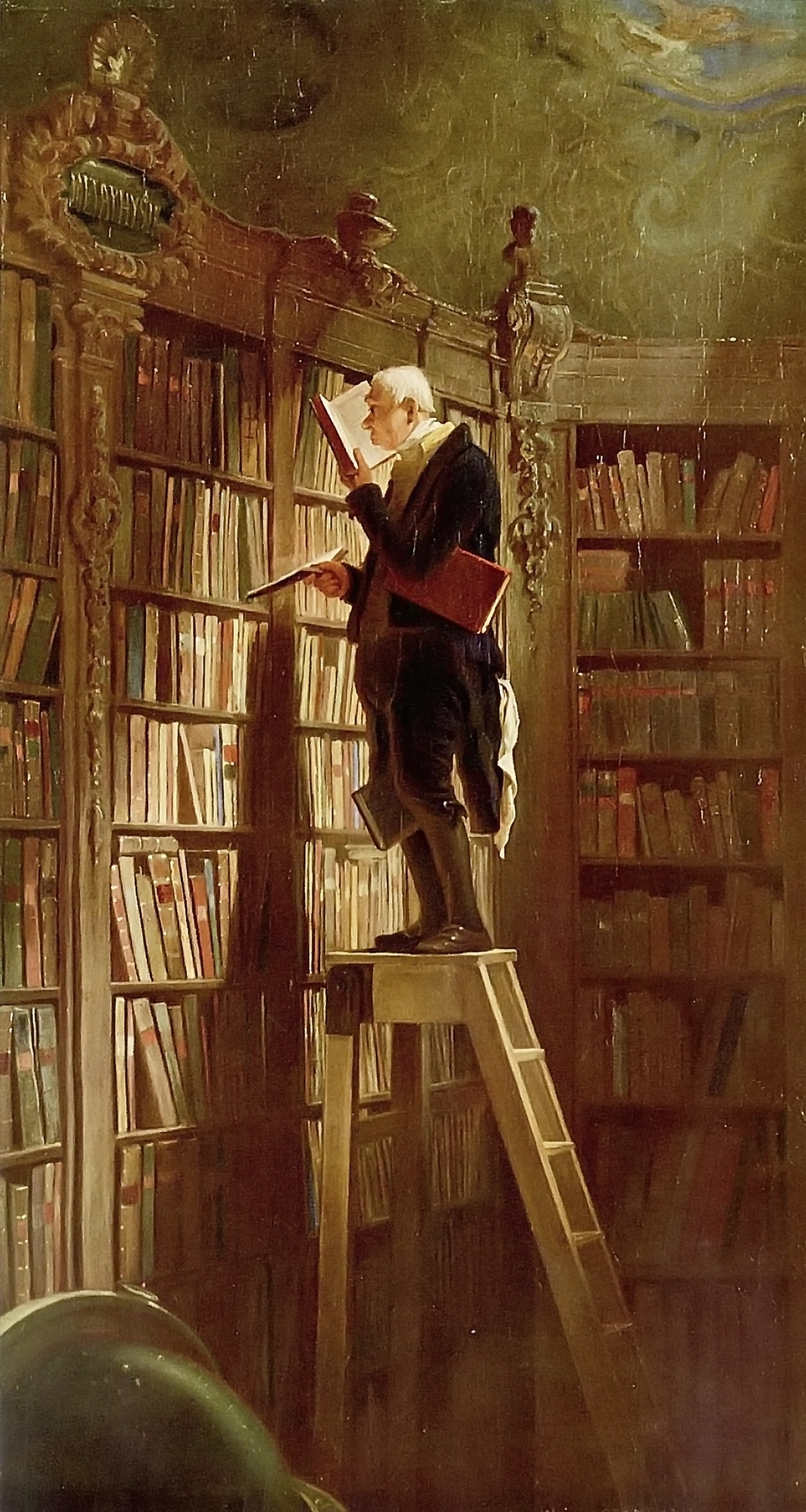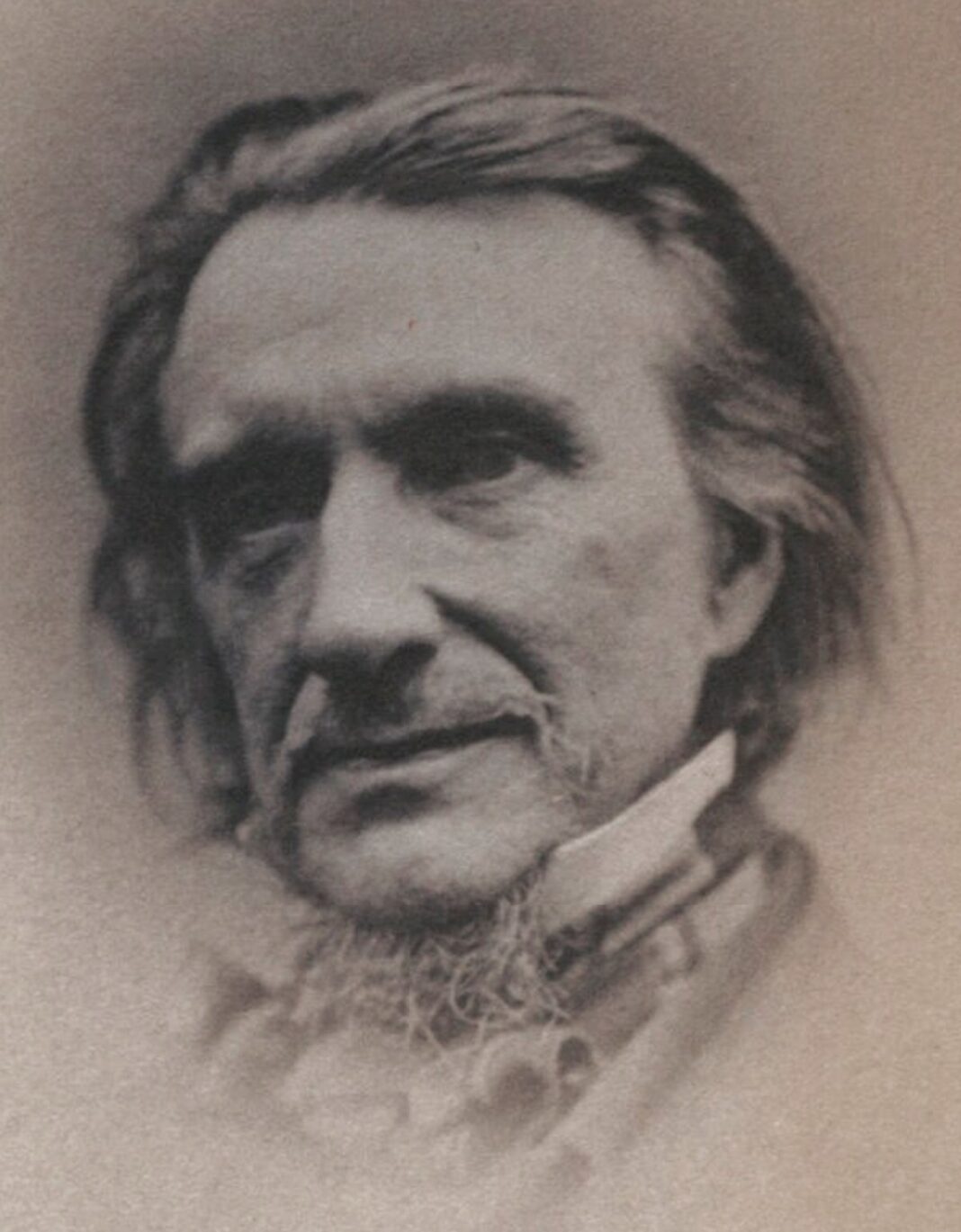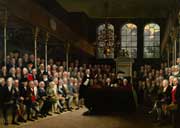
Henry Nutcombe Oxenham
Vivisection at Oxford
letter to the editor, Spectator Magazine
「1884-Feb 09」 Henry Nutcombe Oxenham, letter to the editor, “Vivisection at Oxford,” Spectator Magazine 57 「Google Books」(1884 Feb 09): 184.
To all who…hold vivisection to be in itself cruel, immoral, and demoralising to those engaged in it…we can only hope, as we may well believe, that the healthy growth of public opinion on the subject will inspire a future Convocation to undo the evil work now perpetrated.
__________
VIVISECTION AT OXFORD.
「TO THE EDITOR OF THE “SPECTATOR.”」
SIR,—To all who, whether or not they are convinced of its uselessness for medical science, which could alone afford a shadow of justification for the practice, hold vivisection to be in itself cruel, immoral, and demoralising to those engaged in it, the victory of the Vivisectionists at Oxford last Tuesday will be matter of deep regret; and many will, with myself, especially regret to find the honoured name of the Warden of Keble, who in June last opposed the scheme, now ranged among its supporters. We can only hope, as we may well believe, that the healthy growth of public opinion on the subject will inspire a future Convocation to undo the evil work now perpetrated.
Meanwhile, it may not be superfluous to expose a common though transparent fallacy, reproduced in the Pall Mall Gazette of Tuesday last, with direct reference to a letter of mine in the Times of that day. After saying I had “complained”—I had simply referred to the fact as amply justifying a reconsideration of the question—that the vote of June 3rd was snatched, in the absence of non-resident “M.A.’s” by a majority of three, the writer proceeds,—“That is to say, a proposal affecting the internal studies of the University has already been sanctioned by「a bare majority of」the persons responsible for those studies. What better argument can there be in its favour?”
The answer is too obvious to have escaped the notice of the writer. In matters merely affecting “the internal studies of the University”—such as the arrangement and rearrangement of the various Schools, which to outsiders appear to be, like the world of Heracleitus in a state of chronic flux—non-residents, as a rule, may neither call nor desire to interfere, and might fear by doing so that they would only “meddle and muddle” in what seems, from its perpetual fluctuations, to be sufficiently muddled already. But the question of establishing for the first time what Mr. Freeman justly called “a chamber of horrors”
at Oxford—under the charge of a Director well known as one of the two or three most thorough-going, zealous, and remorseless advocates and apostles of scientific torture in this country—is a radically different affair. It is a directly ethical question, and a question not of detail, but of principle; therefore, it concerns far more closely all who are interested in the training of our future statesmen, barristers, clergy, gentry, and the educated classes generally–notably, all parents of present or future Undergraduates, who form a very large moiety of the non-resident constituency—than it concerns the actual Teaching Staff of the University, as such.
Dr. Acland came forward in the Times as the apologist of this unhappy measure. Yet his own evidence before the Royal Commission of 1875 is quite enough to condemn it. Allow me to quote a few words from the report of it in the Blue-book :—“The number of persons in this and other countries who are becoming physiologists, without being medical men, is very much increasing . . . There are a number of persons now who are engaged in the pursuit of these subjects for the purpose of acquiring abstract knowledge. That is quite a different thing. I am not at all sure that the mere acquisition of knowledge is not a thing having some dangerous and mischievous tendencies in it. Now it has become a profession to discover, and to discover at any cost.”
(944.) No words could more exactly describe the class of persons for who Dr. Burdon Sanderson himself, though his evidence was given with marked reserve, pleaded before the same Commission, and for whose use the terrible “Handbook of the Physiological Labratory,” edited by him, is designed. He said, e.g., inter alia, that while it was desirable to organize the systematic teaching of physiology to medical students, his own object was to urge something further:—
“That teaching is not what I mean by a school of physiology. I mean by a school of physiology, not the teaching of students by lectures, but the association of workers, under the direction of a head, such persons not being students in the ordinary sense, but men who are themselves devoted to science, either for their whole lives, or for a certain definite period, men who are intending earnestly to engage in research for a certain time. It is in this way, I think that physiology ought to be studied, and the more it is studied in this way the better. In such schools of physiology it is clear that the work which will be done will be in great measure experimental, because we cannot make progress without experiments of one sort or another, painful or otherwise.”
(2302.)
I will not trespass on your space by citing at length the emphatic testimony of my lamented friend, Professor Rolleston who then occupied what is virtually the Chair now held by Dr. Burdon Sanderson ; but his judgment on his present successor’s “Handbook” deserves to be put on record here. Being asked by Mr. Hutton if he rightly understood him to consider it “a dangerous book to society, and that it has warranted to some extent the feeling of anxiety its publication has created,” he replied, “I am sorry to have to say that I do think that is so.”
(1351.) With one more too significant extract from Dr. Burdon Sanderson’s own evidence, I will conclude. Being asked his opinion of the experiments for baking animals to death, to see at what temperature they would die, practiced by M. Delaroche and M. Berger, he replied:—“Those experiments might, if they were conducted with skill, be on the one hand productive of important results; and, on the other, not attended with much pain.” (!)
This, therefore, is the kind of painless physiology we may expect henceforth to see introduced at Oxford, under the high sanction of the University, for the edification of studious youth. Absit omen !—I am, Sir, &c., H. N. OXENHAM. New University Club, February 6th.




